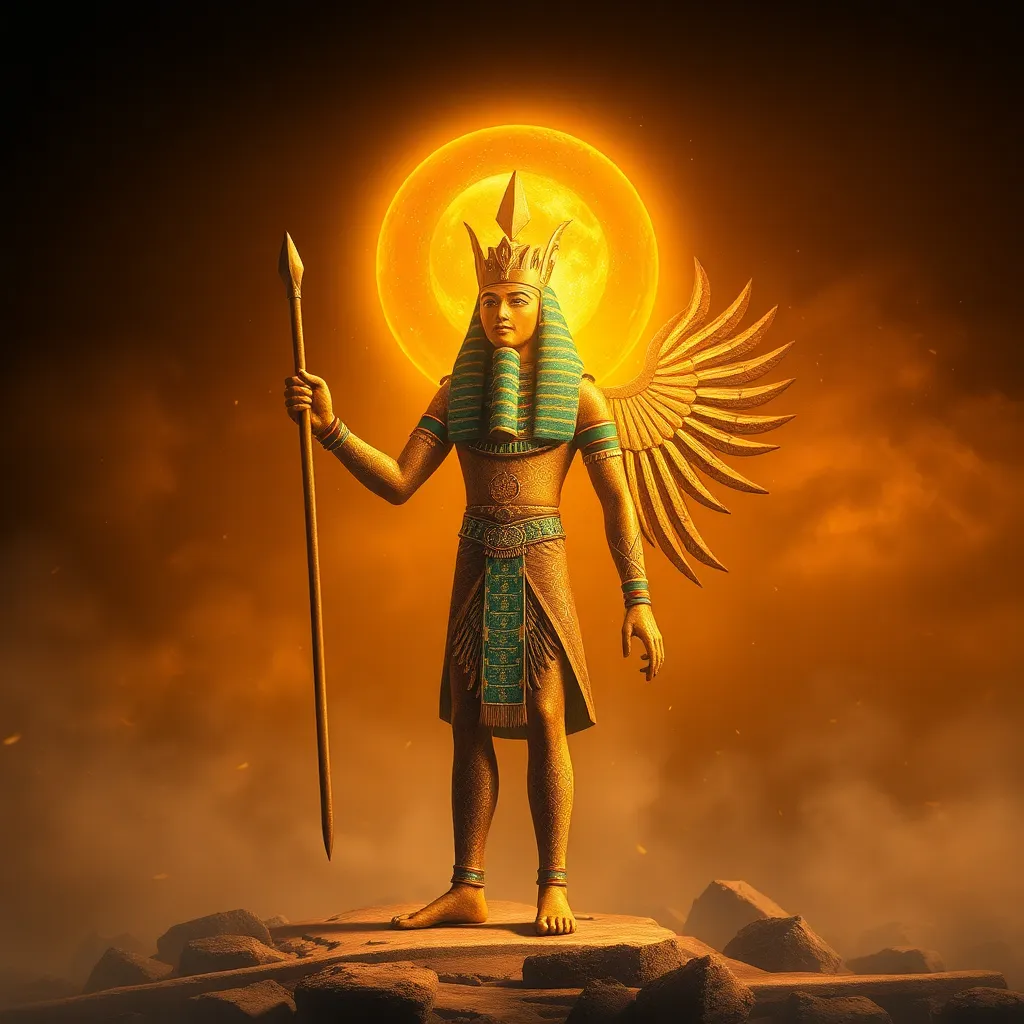The God of the Earth: Geb’s Role in Creating the World and Providing for Mankind
I. Introduction
In Ancient Egyptian mythology, Geb is revered as the god of the Earth, embodying the physical ground that sustains life. His significance extends beyond mere representation of the soil; he plays a crucial role in the creation of the world and the provision of resources necessary for mankind’s survival. The relationship between Geb and agriculture is particularly important, as he is often associated with fertility and abundance. This article aims to explore Geb’s mythological background, his contributions to creation, and his enduring legacy in the context of Ancient Egyptian culture.
II. The Mythological Background of Geb
Geb’s origins can be traced back to the rich tapestry of Egyptian creation myths. He is often depicted as the son of the sky goddess Nut and the air god Shu, making him a central figure in the divine family that shaped the world. His siblings include:
- Nut (the sky)
- Shu (the air)
- Osiris (the god of the afterlife)
- Isis (the goddess of magic and motherhood)
- Seth (the god of chaos)
- Nephthys (the goddess of the home)
In Egyptian cosmology, the symbolism of the Earth is profound. Geb represents stability, nourishment, and fertility, providing a solid foundation for life. The ancient Egyptians viewed the Earth as a living entity, one that was intimately connected to the cycles of nature and the rhythms of human existence.
III. Geb’s Role in Creation
The separation of earth and sky is one of the most significant acts in Egyptian mythology, with Geb and Nut embodying these two realms. According to the myths, Geb lies beneath Nut, who arches over him, creating the heavens. This separation allowed for the formation of the world, with Geb’s contributions being foundational to the creation of life.
Geb’s role in the formation of the world includes:
- Providing the land where plants and animals can thrive.
- Being the substrate from which all living beings emerge.
- Serving as a resting place for the dead, linking the physical and spiritual realms.
In this context, Geb is not merely a passive entity; he is an active participant in the creation of living beings, nurturing the earth’s flora and fauna and ensuring the continuity of life.
IV. Geb as the Provider for Mankind
As the god of the Earth, Geb is associated with blessings of fertility and abundance. He is often invoked in agricultural contexts, as he is believed to bestow the gifts of the harvest. His nurturing aspects are illustrated in various myths that highlight his protective nature towards humanity and the environment.
Some key aspects of Geb’s nurturing role include:
- Granting fertility to the soil, leading to bountiful crops.
- Supporting the growth of plants and the sustenance of animals.
- Providing a stable environment for human civilization to flourish.
V. Geb in Ancient Egyptian Agriculture
Geb’s influence on farming and crop cycles is deeply rooted in Egyptian agricultural practices. The Egyptians believed that their agricultural success was directly linked to his favor, leading to various rituals and offerings made in his honor. Farmers would often:
- Offer the first fruits of their harvest to Geb as a sign of gratitude.
- Conduct rituals during the planting season to seek his blessings for a fruitful yield.
- Celebrate festivals that honored fertility and the earth.
These practices underscored the importance of Geb in ensuring the survival and prosperity of the community, reflecting the deep connection between the divine and the daily lives of the ancient Egyptians.
VI. Geb’s Importance in Fertility and Rebirth
Fertility and regeneration are central themes in Geb’s worship. His symbolism is intertwined with the annual flooding of the Nile, which enriches the soil and revitalizes the land. This natural phenomenon was seen as a manifestation of Geb’s nurturing power, marking the beginning of the planting season.
Key connections between Geb and the Nile include:
- The floods bringing life to the barren land, allowing crops to grow.
- Geb being celebrated during the inundation as a provider of sustenance.
- His association with rebirth, as crops die and renew each season.
In this way, Geb’s importance extended beyond agriculture, symbolizing the cyclical nature of life and death, and the perpetual renewal of the earth.
VII. Cultural Depictions of Geb
In ancient art, Geb is often depicted in various forms, symbolizing his association with the earth. Common representations include:
- A man lying on the ground with green vegetation, symbolizing fertility.
- A goose, which is a play on the word Geb as it means to lay eggs in Egyptian.
- In temple reliefs, Geb is often shown with Nut arched above him, emphasizing their relationship.
Temples and shrines dedicated to Geb were integral to the spiritual landscape of Ancient Egypt, where worshippers would seek his blessings. His influence also permeated literature and folklore, where stories of his deeds and interactions with other gods were recounted, reinforcing his significance within the pantheon.
VIII. Conclusion
In conclusion, Geb holds a pivotal role in Ancient Egyptian mythology as the god of the Earth, significantly impacting creation, agriculture, and fertility. His contributions to the world as a provider of nourishment and stability underscore his importance in the lives of the ancient Egyptians. The lasting impact of Geb on Egyptian culture is evident in their agricultural practices, religious rituals, and artistic expressions. Today, Geb’s legacy continues to resonate, reflecting a profound appreciation for the earth and its cycles, reminding us of the ancient beliefs that shaped human understanding of the natural world.




